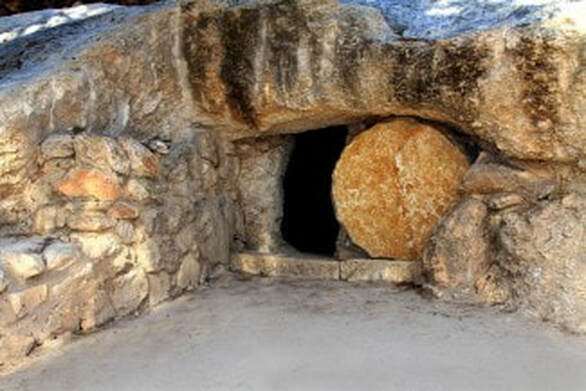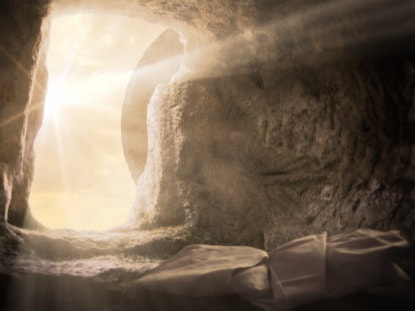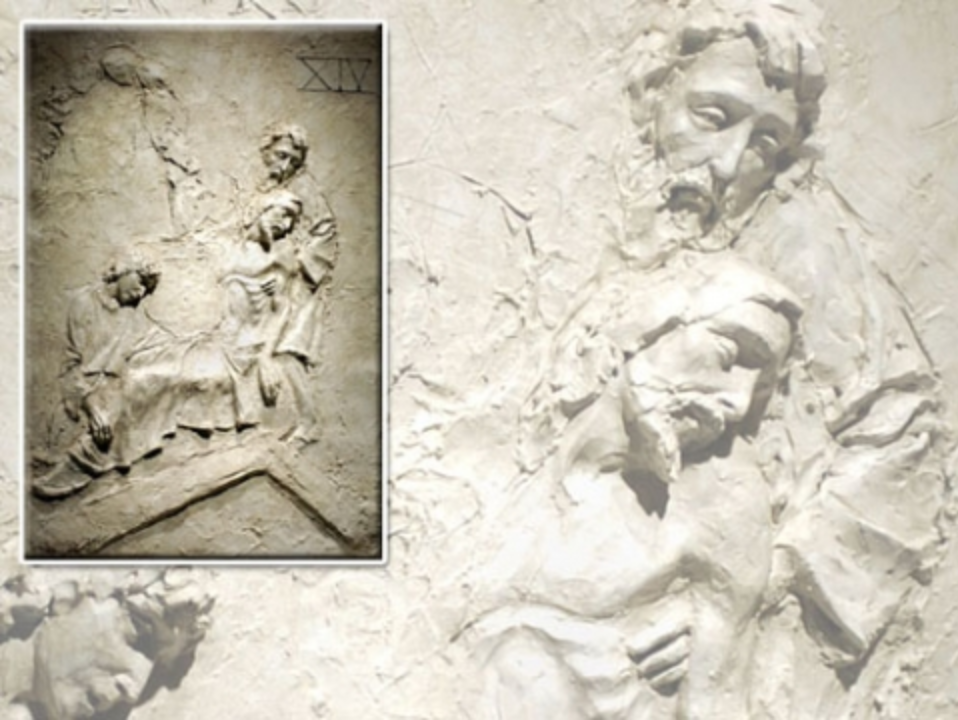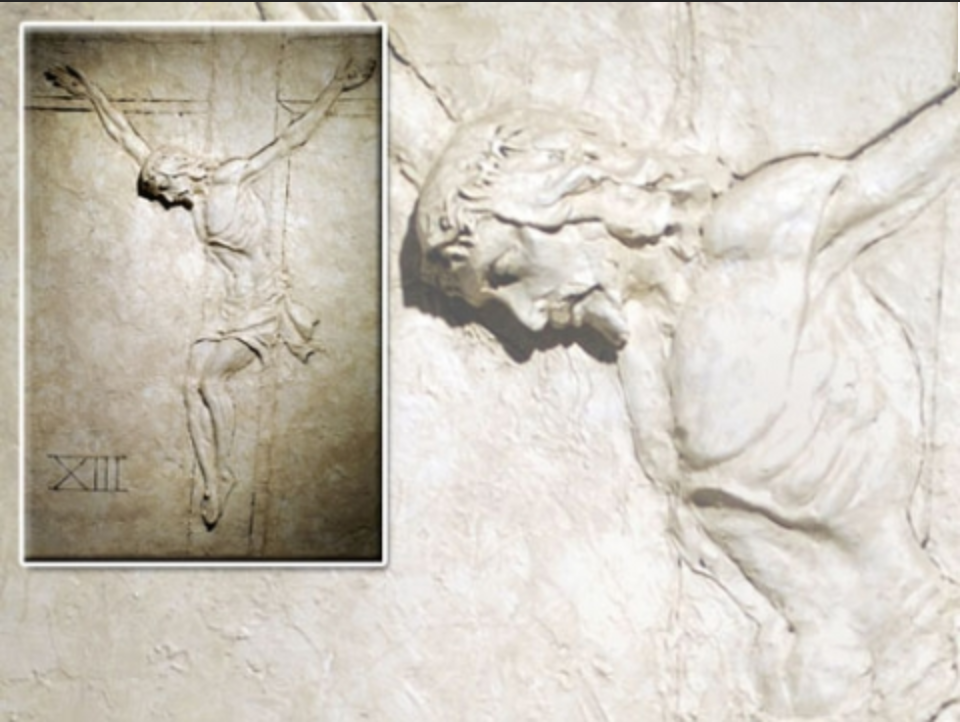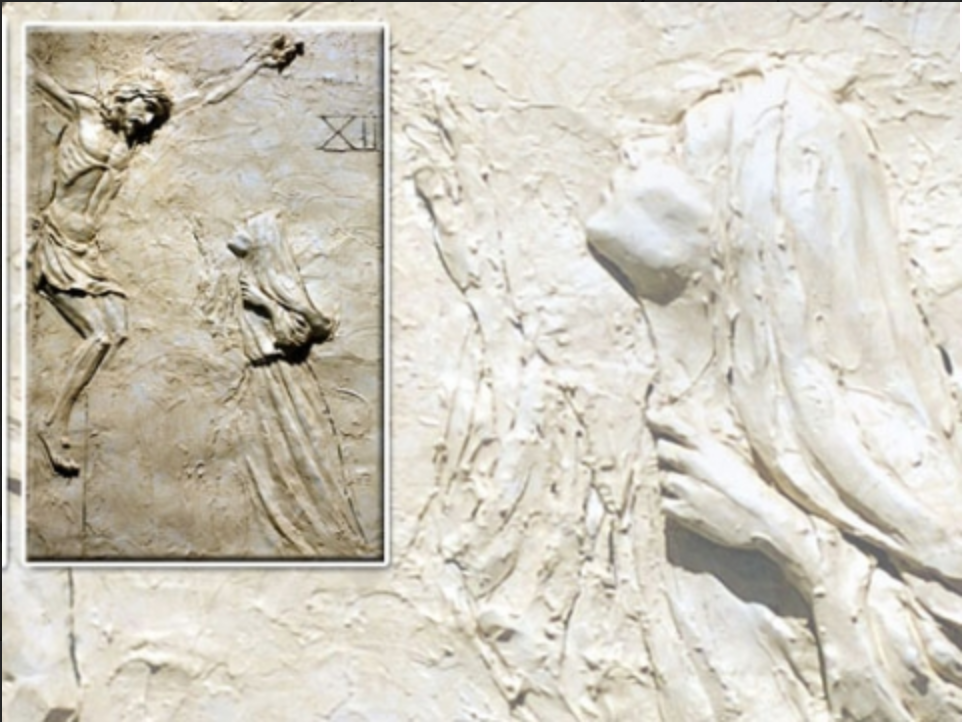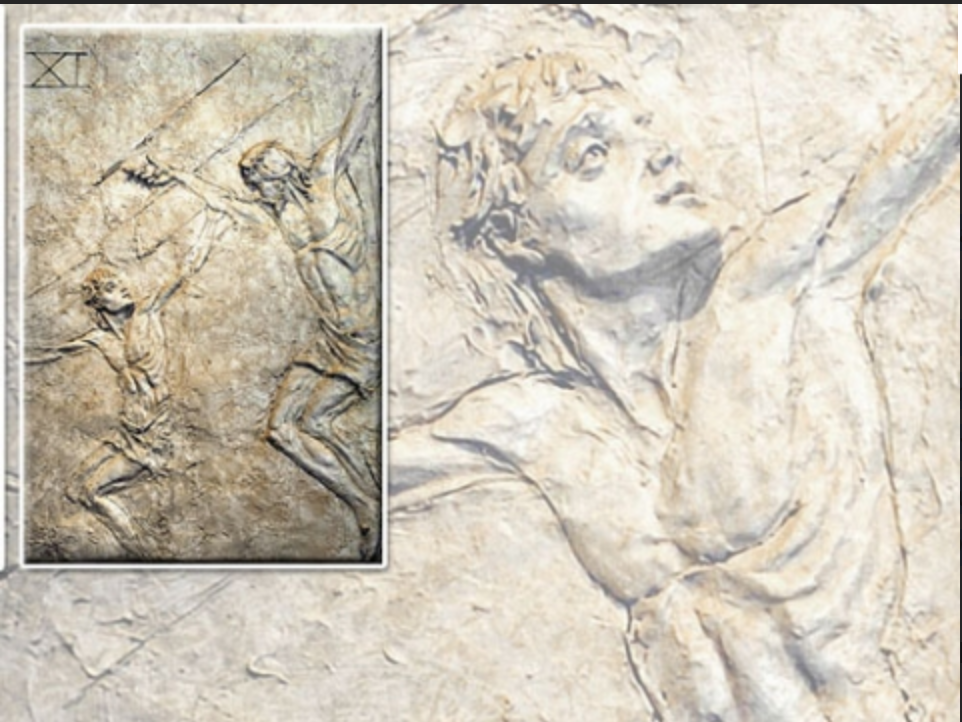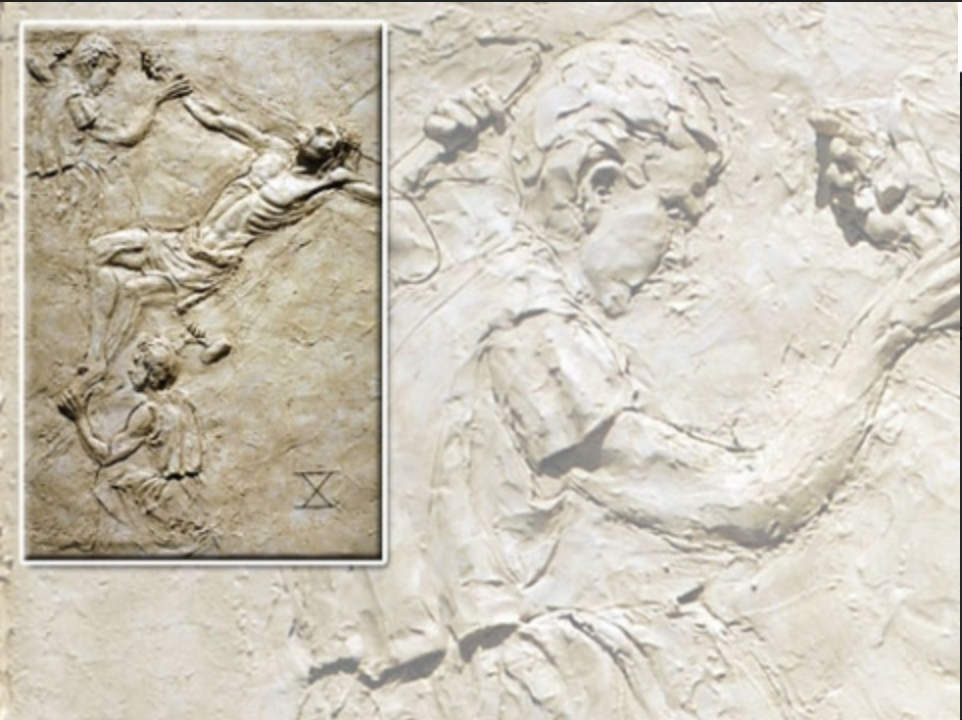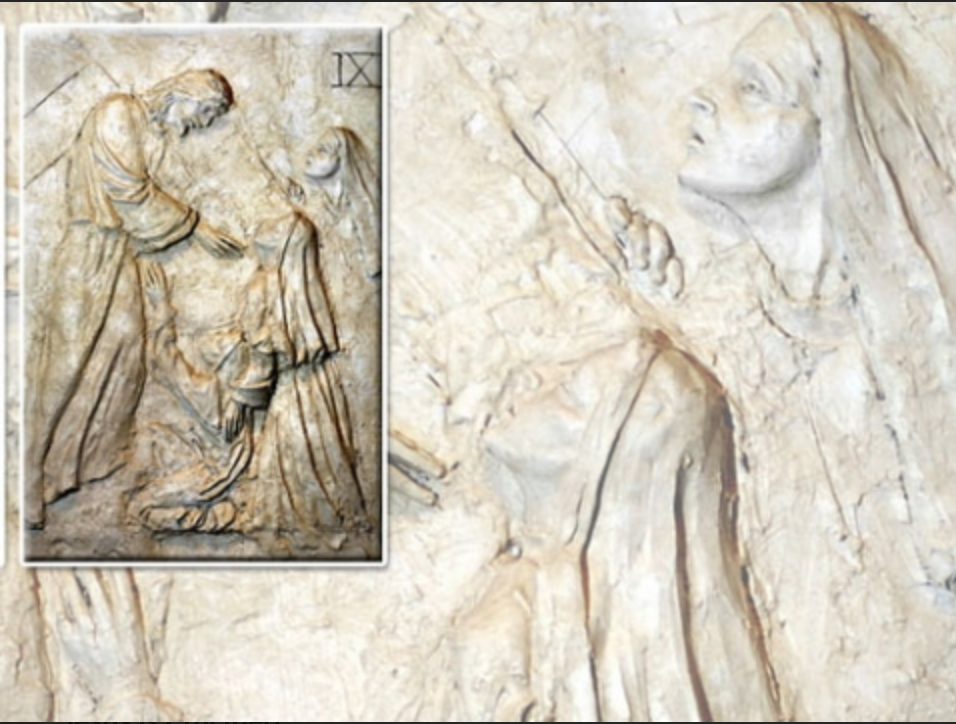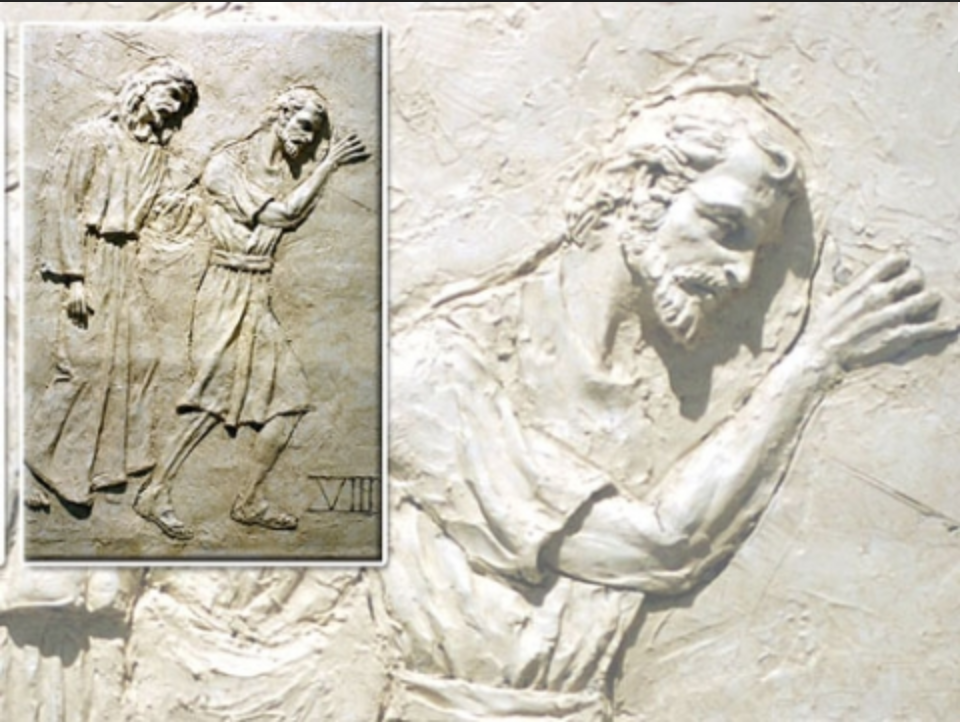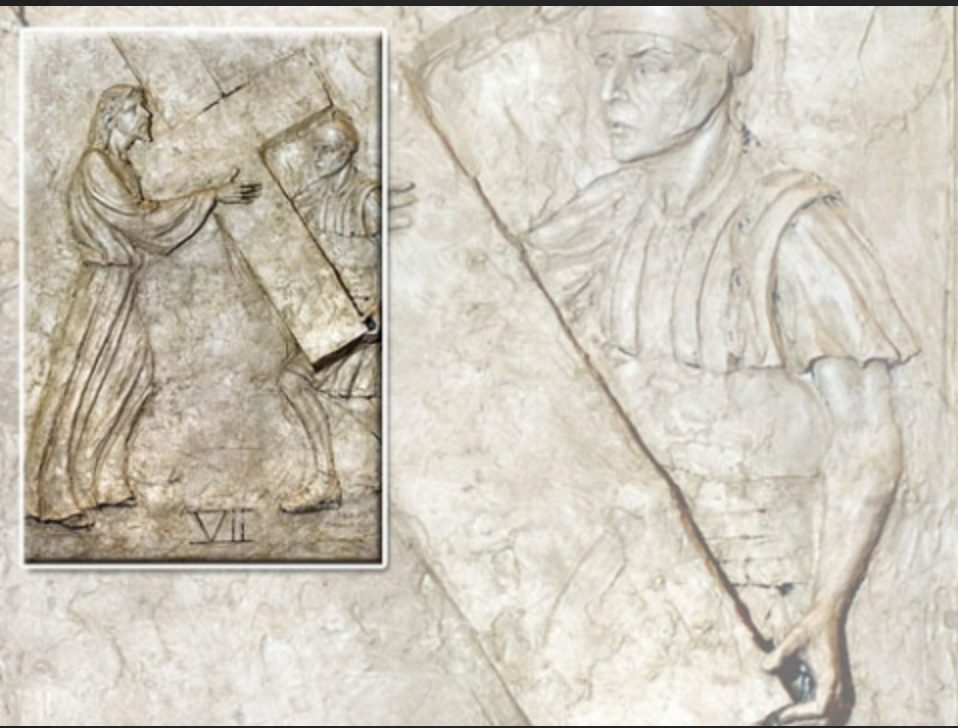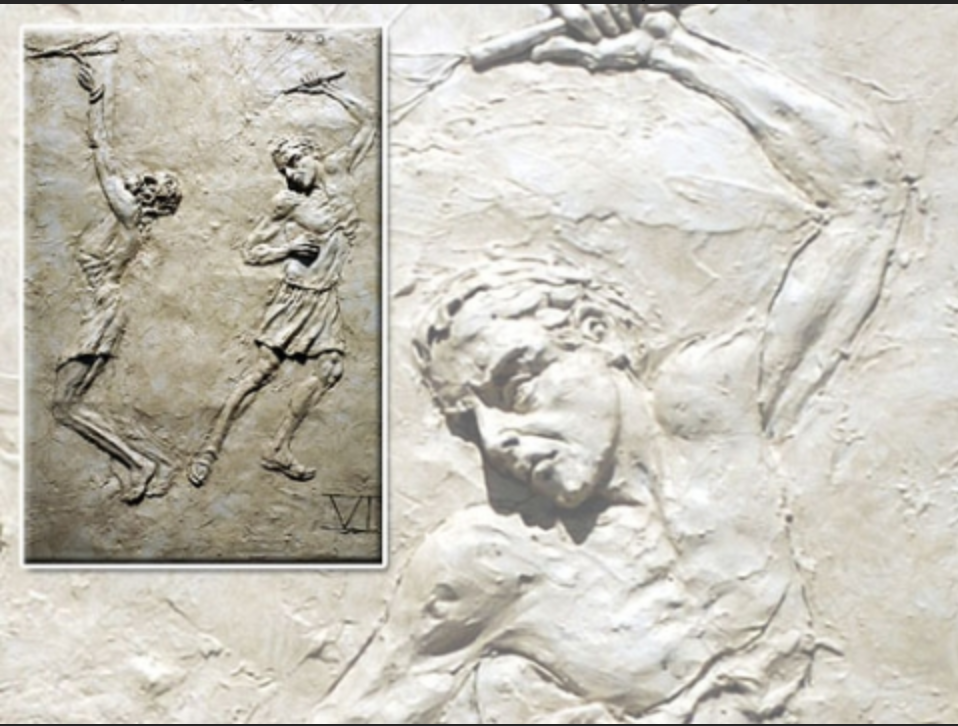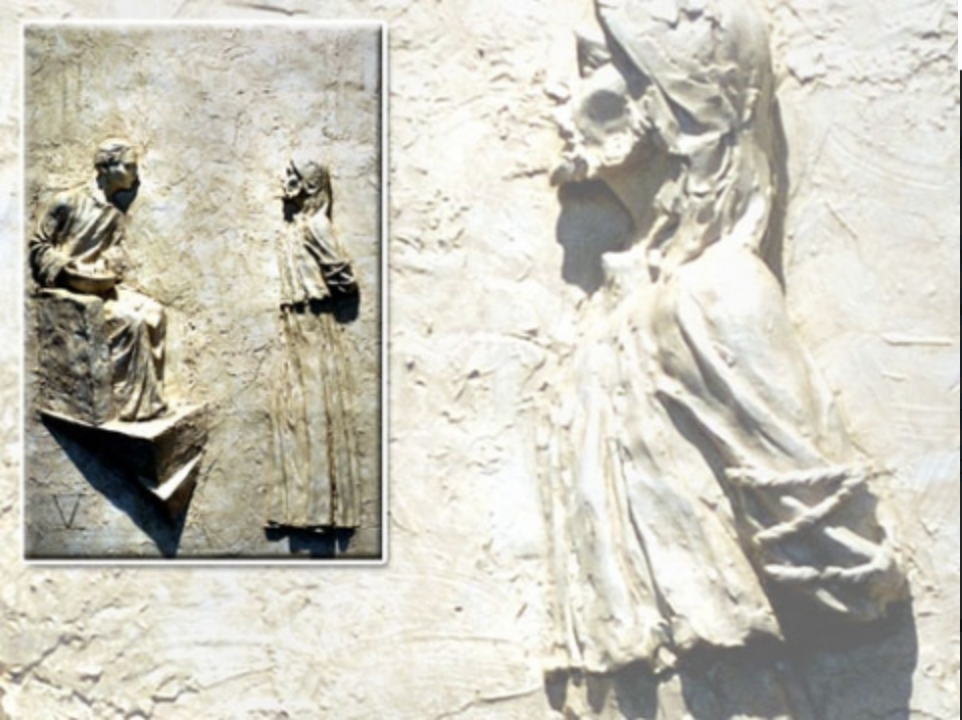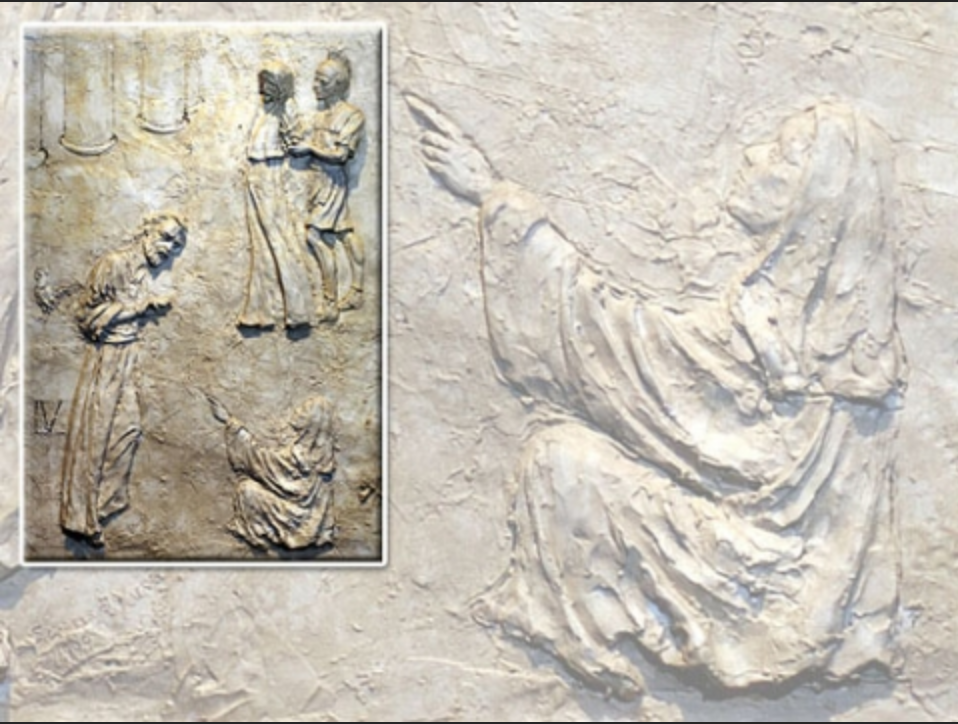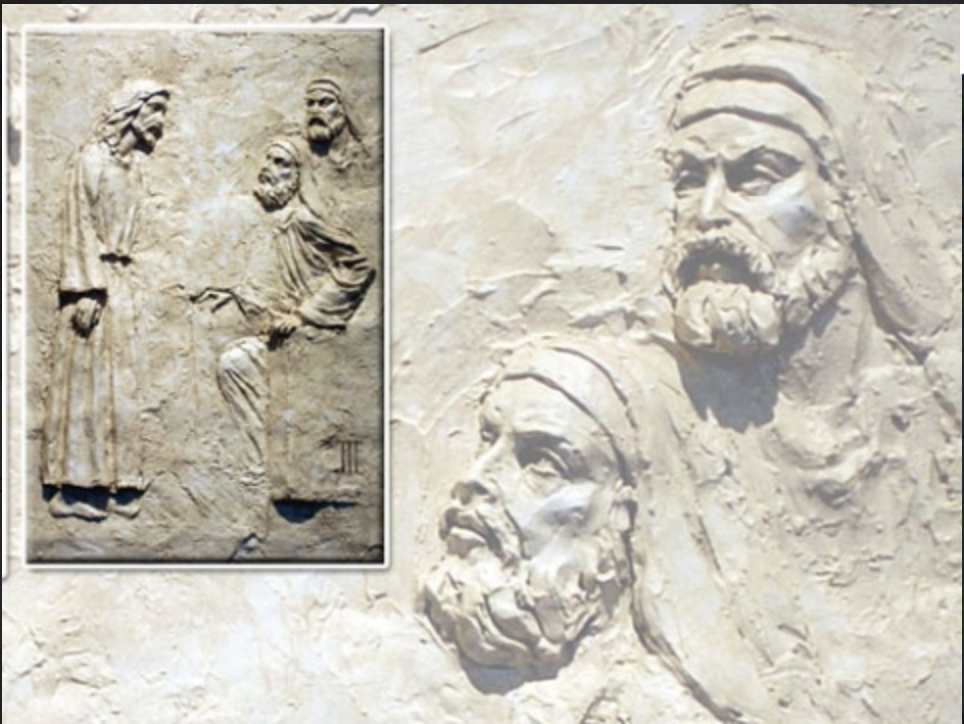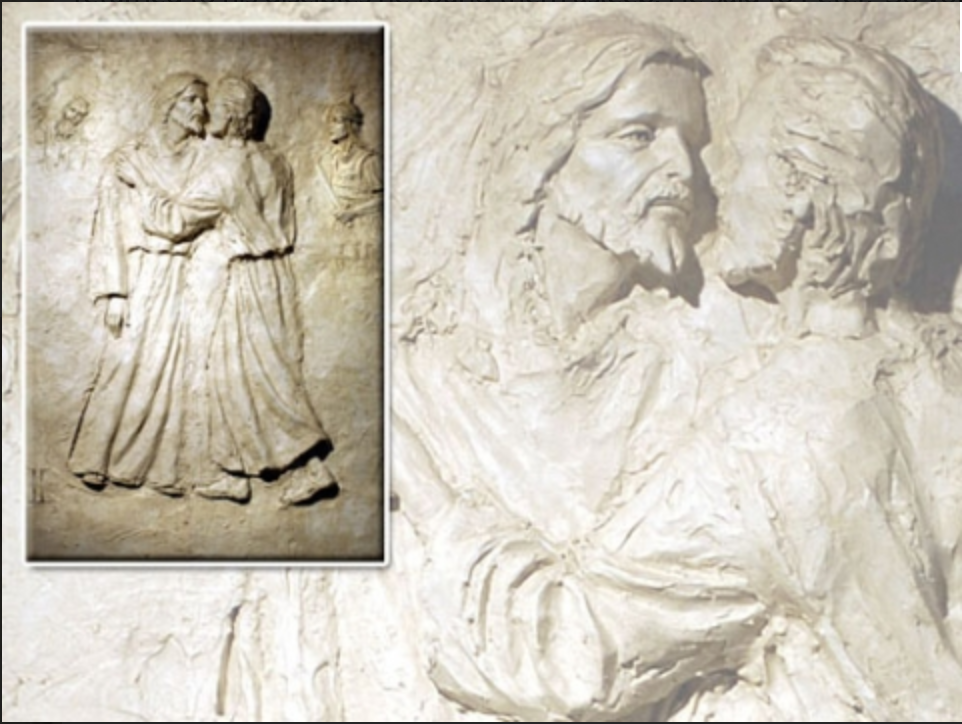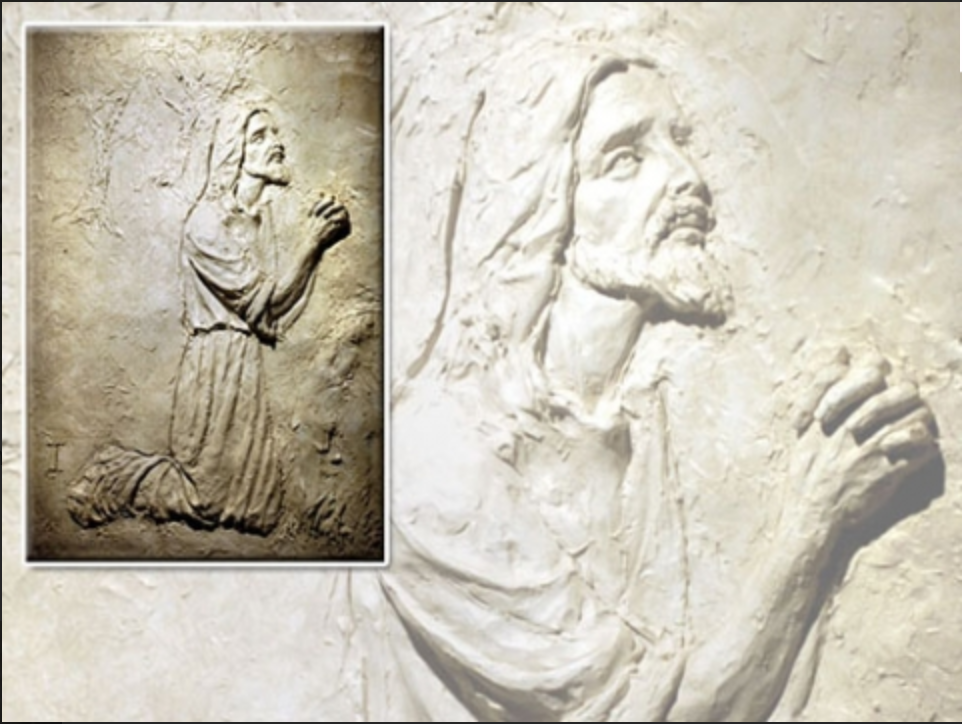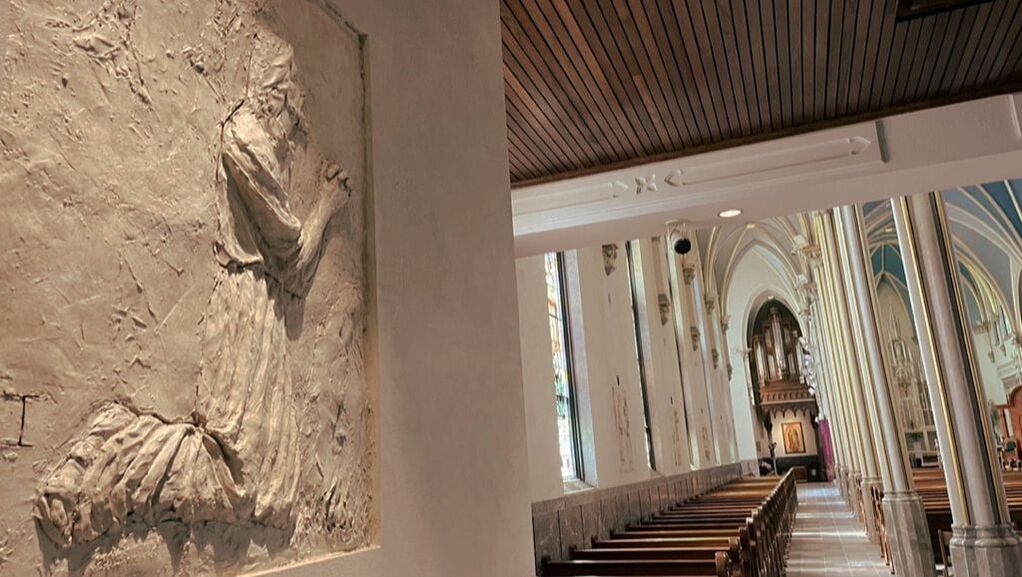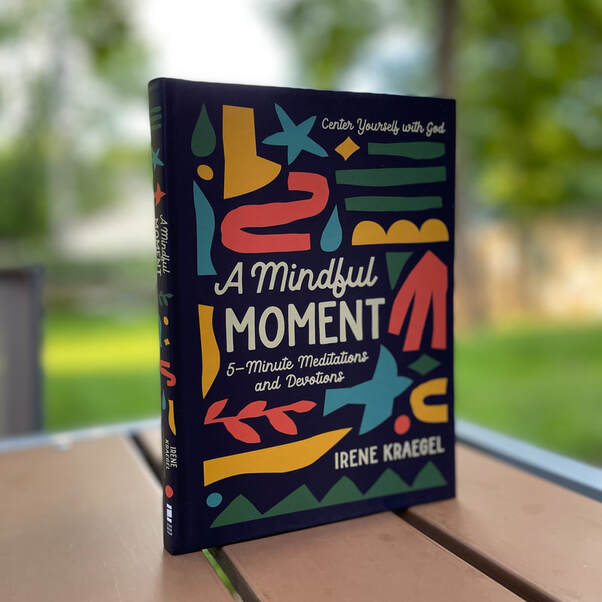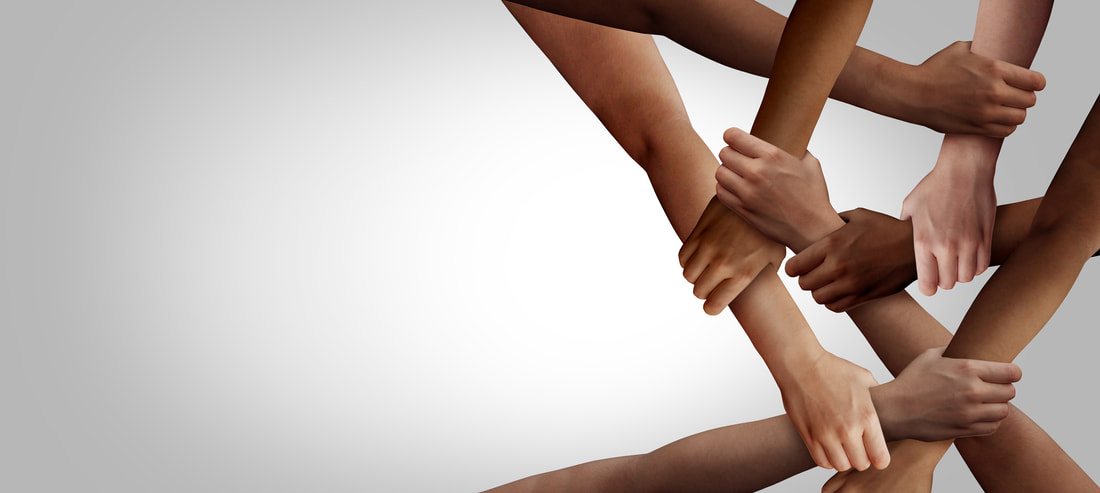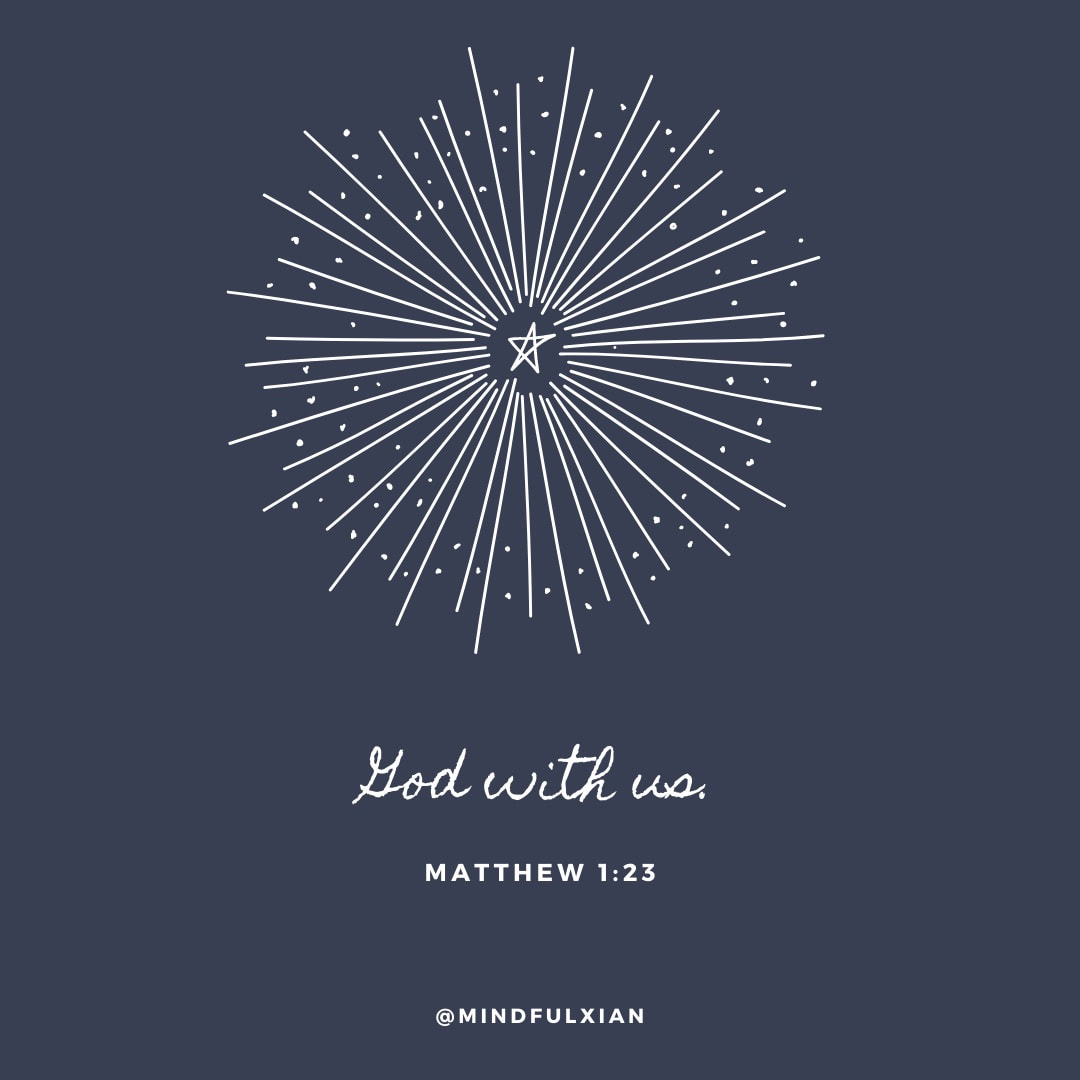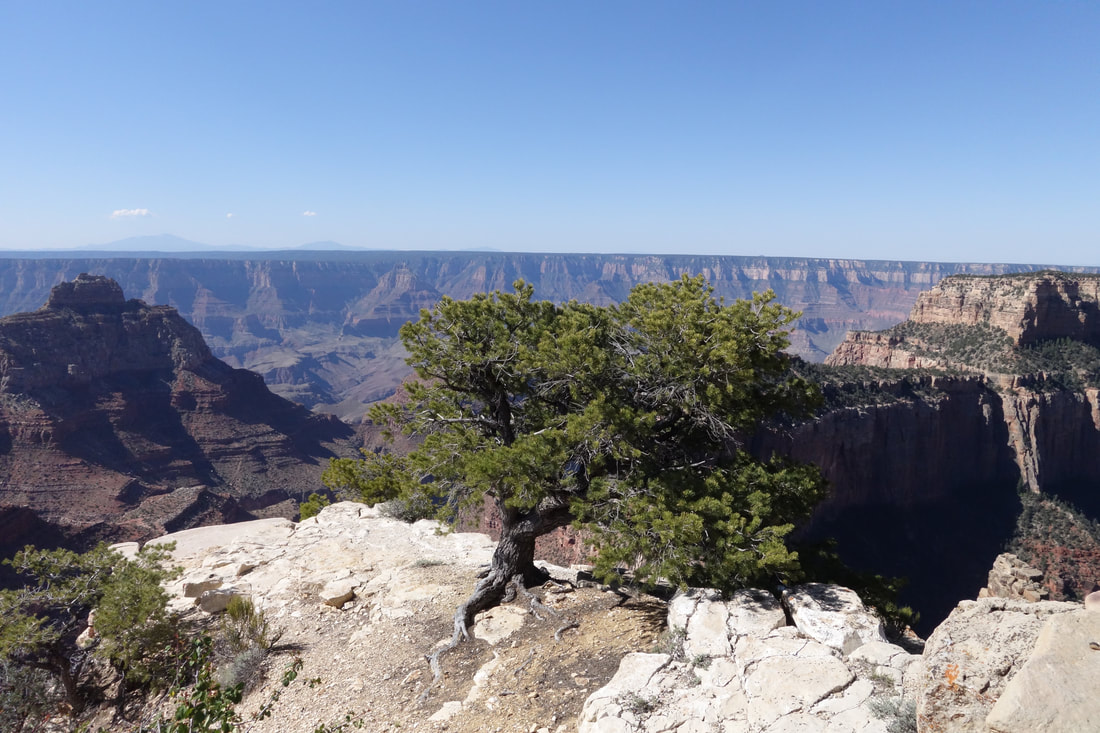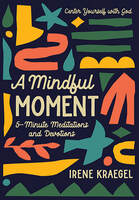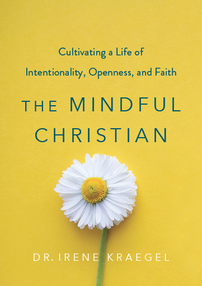|
When it was time for his redemptive entry into the world, God had his faithful people ready everywhere, invited at that moment to receive the joyful news and participate with him in his incarnational mission. He invited a whole, multifaceted community along for the ride, choosing those with hearts who had been waiting for him, who were ready to say yes. With each invitation, the Holy Spirit brought JOY. With Mary, Elizabeth, Zachariah, the shepherds, even unborn John in the womb - each time the Holy Spirit spoke, the response was joy. What amazing news they received, that God loves us, is with us, and saves us from our sins! The shepherds received that joyful news in the darkness, and many of us can relate to that much of the time. Life is often dark and hard. As for the shepherds working the night shift, it's in the darkness - of our poverty, shame, dysfunction, stress, disordered priorities, fear, hopelessness - that God breaks through with light. When it's dark, these are the moments we are invited to listen up for the song of the Christmas angels, a song that comes with light, reassurance, joyful news, and peace. A song that instructs us with signs of God ("And this will be a sign for you: you will find an infant wrapped in swaddling clothes and lying in a manger." Lk 1:12). The dark moments are the ones in which we're invited to get quiet, to be present to God with all of what we're feeling, and to be attentive to what the Holy Spirit has to say to us. He has your good at heart. He will restore your joy in due time, because that's what he does. "...I proclaim to you good news of great joy that will be for all the people... a savior has been born for you..." (Luke 1:10,11) The shepherds received the good news in the midst of their dark night, and they responded by going "in haste" to find God incarnate, using the sign given by the angels. Mary responded to their visit (and all the joyful messages she and her community were receiving from God) by reflecting in her heart, allowing that shimmering love-light to reflect and bounce around in her soul. In the darkest of nights, we are invited to respond in the same way as the shepherds and as Mary - be present to what God is doing, follow the signs he sends, and spend time in reflection. The Holy Spirit will always lead us through the darkness back to joy. This is the Spirit-breathed message of Christmas. Taking time to mindfully meditate on Luke 1:26-2:38, entering into the narrative with your full focus and imagination, can create an opening to receive these joyful gifts of God through Scripture - a practice with benefit not just at Christmas but all year long! Glory to God in the highest
3 Comments
This is what the Sovereign LORD says to these bones: I will make breath enter you, and you will come to life. Thank you for following along with the Scriptural Stations of the Cross, leading up to today's Easter Day celebration. You can revisit these Lenten reflections at any time by going back to the overview provided on March 5, 2023, and moving forward in blog entries from there. I pray that you have been blessed as you have reflected on the Passion of Christ and that you experience glimmers of God's joy as you ponder his life-giving Resurrection! Today's entry is an excerpt from page 86 of A Mindful Moment: 5-Minute Meditations and Devotions (Zondervan, 2022), written with teens in mind but appropriate for adults too! ... Reflection You may have had times of feeling dead in your spirit—seasons of sadness or depression, or grief over the loss of someone (or something) important to you. You may even have responded to this heavy suffering with a loss of the desire to live. God is all about restoring life. In this story [from Ezekiel 37], he gives the prophet Ezekiel a vision of dry bones, asking “Can these bones live?” While the most logical answer would have been no, God is all about life, and his answer was “yes.” He attached tendons to the bones, added some flesh and skin, and breathed life into those dead bodies. And voilà, they were alive! A weird and also super cool metaphor for how serious God is about resurrection. Deadness is no match for him because he IS the breath of life. You don’t have to resurrect yourself when you’re feeling dead or deflated. God will do that. You’ll sometimes have to wait and hope, and you’ll sometimes wonder if it’s possible, but God is all about life (your life), and he will bring resurrection to pass. Christian Mindfulness Practice Following [a] breathing space guide…, notice the breath in your body which is God’s breath, handed down since the beginning of human history. God is breathing life into you, and he will continue to do so. When you are finished, jot down some observations in your journal. When it was evening, there came a rich man from Arimathea named Joseph, who was himself a disciple of Jesus. He went to Pilate and asked for the body of Jesus; then Pilate ordered it to be handed over. Taking the body, Joseph wrapped it [in] clean linen and laid it in his new tomb that he had hewn in the rock. Then he rolled a huge stone across the entrance to the tomb and departed. (This post is the last of a Lenten series on praying the Stations of the Cross - a devotional practice that is said to have started with Mary after the death and resurrection of Jesus. To start at the beginning, see the overview provided on March 5, 2023, and then go from there.) Reflection The people who are following Jesus attentively (like Joseph of Arimathea) get to participate as helpers in Kingdom work. Sometimes we’re not sure what God is up to, and we don’t yet see any resurrection happening or even know it’s a possibility. Joseph shows us how to use that time of uncertainty – see, advocate, care, tend, show respect and compassion, and give of our resources for others. We won’t be disappointed. This period of waiting in between death and resurrection is so challenging. Even when Jesus prepares us ahead of time for the uncertainty, we still don’t know what’s going on. We may not even be aware that anything is going on, and we don’t know what we’re missing until we look back later to see. But God is at work in the quiet, full of mystery, and we can never know it all. In this particular moment of quiet, we now know that a great spiritual shaking up was occurring as Jesus descended to hell to proclaim life-giving deliverance to the dead. What a trip that must have been! (I have questions for God about that...) It is our deaths and our letting go that bring new life. Wait for it. When all seems lost, be ready to learn how everything has actually been found. Even when it’s dark. And in the meantime, be like Joseph and lend a hand to the kingdom work in whatever way you know how. You won't be disappointed in the end! A note about mindfulness Mindfulness practices help us accept the uncertainty of waiting when things seem dark, hard, and hopeless. They build resilience, teaching us to open up to what is happening instead of resisting out of fear. In this way, mindfulness can be used by Christians who seek openness to what God is doing in times of dark uncertainty – it can help us work with God in the midst of the quiet instead of against him. (For a list of mindfulness practices that help to stay engaged and attentive when things are uncertain, check out the Guides for Practice available here.) Wrapping up the stations Thank you for reflecting and praying with me this Lenten season through the Stations of the Cross. We've reached the final station, and it's time now to be quiet in the grief and awe of Christ's sacrifice for us. At the same time, Christians are people who know resurrection is on the way - so I hope you'll meet me back here on Easter Day to celebrate our God who is all about life. See you then! It was now about noon and darkness came over the whole land until three in the afternoon because of an eclipse of the sun. Then the veil of the temple was torn down the middle. Jesus cried out in a loud voice, “Father, into your hands I commend my spirit”; and when he had said this he breathed his last. (This post is part of a Lenten series on praying the Stations of the Cross - a devotional practice that is said to have started with Mary after the death and resurrection of Jesus. To start at the beginning, see the overview provided on March 5, 2023, and then go from there!) Reflection Jesus had once said “Give to Caesar what is Caesar’s and to God what is God’s” (Mark 12:17). Now, he gives his earthly body back to the earth and his Spirit back to his Father God. As it is for us too, God had been at work in the earthly body, but we all return our bodies back to the earth eventually and surrender our spirits back to the Father. Here at Station XIII, there is some relief that the pain of Jesus’ dying is over, some peace in surrender. It’s okay to feel relief when the pain stops. And yet there is so much more than the end of physical pain here. From the moment of his conception in Mary’s womb, Jesus’ whole earthly life had been all about breaking down the division between God and humanity. He was creating access for us to God, right here in our earthly existence. That accessed was finalized in this moment of his death with the tearing of the temple curtain. No more division between God and us – we’re invited to walk right into the inner sanctum. The emotional darkness for Jesus’ disciples must have been profound as he died. It is so notable that they are barely mentioned through this whole Passion story, including this most important moment of Jesus’ sacrifice. Where were they? Hiding and afraid…hopeless and confused…struggling to believe God could still be with them when powers and crowds so clearly were not…? They could not be ready for this until the Spirit came later – they needed power beyond themselves, both to bear the grief and also to see the glory to come. Were the disciples still subscribing to a “winner takes all” attitude, able only to see this as a fight they had lost? With their leader humiliated and put to death, they felt unsafe, rejected, and even embarrassed. But those who stayed with Jesus until the end (the Marys and John were there) were not out to win, just to be close to Jesus. They loved him, and they stayed in connected relationship with him even in the moment of his death. Am I more drawn to winning or to abiding? A note about mindfulness The confusion of our circumstances can distract us from the work God is doing beneath the surface. Showing up fully in the present moment, no matter what we feel, is the first step in abiding with Christ. Mindfulness can help us show up fully for both the crucifixion and the resurrection to come, giving us glimmers of what God has in store for those who persevere through life’s trials. (For a list of mindfulness practices that help you abide where Jesus is, in the present moment, no matter what you are feeling, check out the Guides for Practice available here.) Standing by the cross of Jesus were his mother and his mother's sister, Mary the wife of Clopas, and Mary of Magdala. When Jesus saw his mother and the disciple there whom he loved, he said to his mother, “Woman, behold, your son.” Then he said to the disciple, “Behold, your mother.” And from that hour the disciple took her into his home. (This post is part of a Lenten series on praying the Stations of the Cross - a devotional practice that is said to have started with Mary after the death and resurrection of Jesus. To start at the beginning, see the overview provided on March 5, 2023, and then go from there!) Reflection From the beginning of her journey as a mother to this bitter end, Mary was always alone in some ways. Hearing the message of the angel at the Annunciation, outcast in a stable at the time of Jesus’ birth in Bethlehem, fleeing to Egypt as a refugee, and knowing all along of this painful moment to come (“a sword will pierce your own soul”) – Mary had carried and cared for the physical body of God, and she was here at the cross as he passed back to Spirit, watching her son’s brutal murder. What a rough road of motherhood. Mary was also never alone. Jesus had a deep connection with his earthly mother who had attended so faithfully to his needs throughout his time in a human body, and he attended faithfully and tenderly to her needs in this moment. He knew she had loved him well, as had his disciple John - this was evident in that they were both with him at the time of his death (along with the other Marys) - and he knew they could love one another well. He facilitated connection and care, as he loves to do. These types of relationships matter to God. Where is Christ asking me to see and care for those who have served him faithfully? Do I see those who have poured themselves out, like Mary, to follow Christ’s call of love and surrender? Do I trust that Jesus will provide for me too if I give him my all, as Mary did? He is our true security, and he always provides. A note about mindfulness Receiving care requires us to show up and stay present for the long haul like Mary did, even when the going gets tough. Mindfulness is a practice that helps us to be present. This allows us to enter into the connections created for us by God. He never leaves us alone or forsaken. (For a list of mindfulness practices that help you stay present to God and open to connections with those God puts in your circles, check out the Guides for Practice available here.) Now one of the criminals hanging there reviled Jesus, saying, “Are you not the Messiah? Save yourself and us.” The other, however, rebuking him, said in reply, “Have you no fear of God, for you are subject to the same condemnation? And indeed, we have been condemned justly, for the sentence we received corresponds to our crimes, but this man has done nothing criminal.” Then he said, “Jesus, remember me when you come into your kingdom.” He replied to him, “Amen, I say to you, today you will be with me in Paradise." (This post is part of a Lenten series on praying the Stations of the Cross - a devotional practice that is said to have started with Mary after the death and resurrection of Jesus. To start at the beginning, see the overview provided on March 5, 2023, and then go from there!) Reflection These criminals are guilt looking at absolution personified, and the second criminal understood that. Was he the luckiest sinner in the world, crucified next to the savior of the world who was forgiving the whole world in that very moment? We are all the luckiest sinners. It’s almost always a temptation to lash out with sarcasm when we're suffering, to mock those we thought would help us in a particular way, and that's what the first criminal did. Helping professionals like me know what it’s like to be on the receiving end of patients’ sarcastic lashing out when there is no magic wand to make their suffering instantly vanish. We all know what it’s like to feel disappointed and angry when things don’t seem to be getting better in the particular way we wanted. So yes, it can be hard to see the salvation we need in the midst of suffering, even when it is right in front of us, because we're angry. How did the second thief manage to see Jesus' divine salvation, hanging on the cross next to him? Somehow, he had cultivated the readiness to receive God’s goodness in the hour that he needed it most. In the Parable of the Sower, this man was the one with good soil, ready to receive God's word, despite the thieving ways that got him crucified. Do the consequences of our sin sometimes get us stuck next to Jesus, the only One we need in that moment to free our souls? Freedom for this thief, stuck next to Jesus, was not about being let off the hook or relieved of his suffering. For him and for us, freedom is about recognizing Jesus and asking him for what we need – intimate relationship with God as we participate in his eternal Kingdom. Cultivating good soil, ready to receive forgiveness when it is offered. A note about mindfulness Mindfulness helps me recognize the good that is right in front of me, even when I am pulled toward sarcastic rejection of what seems too painful or disappointing to bear. It helps me take the long view, noticing what is in the moment while also noticing that it is not the whole picture. All of this can expand my ability to see beyond my pain to also see God who loves me, creating freedom from the tyranny of self-obsession, opening up space for intimate connection with God. (For a list of mindfulness practices that can help reduce self-obsession and sarcastic resistance to the moment, check out the Guides for Practice available here.) When they came to the place called the Skull, they crucified him and the criminals there, one on his right, the other on his left. Then Jesus said, “Father, forgive them, they know not what they do.” (This post is part of a Lenten series on praying the Stations of the Cross - a devotional practice that is said to have started with Mary after the death and resurrection of Jesus. To start at the beginning, see the overview provided on March 5, 2023, and then go from there!) Reflection This is the most-feared moment, and there is no escaping the excruciating pain, nor does Jesus try to escape. He has entered this place that sounds like hell on earth – “the Skull” – and centered himself between two criminals to share in their horror of death by crucifixion. Somehow, he still exudes love here, not anger. He is bringing forgiveness to the whole world and literally to these guilty men on either side of him, bringing ultimate forgiveness into this physical place of ultimate punishment for the crimes of humanity. In the artist's portrayal of Station X, the men conscripted into carrying out this violent act of crucifixion appear tragic to me. What did they feel as they hammered nails through flesh and bone? Did they suspect this was God-as-man? Did their hearts hear any whisper of God? They come across as small and vulnerable, and I can see and feel why Jesus spoke forgiveness over them, even in their moment of violence. They were following orders, and they didn’t know. It makes me wonder when have I caused God pain, thinking I was doing right, and God spoke forgiveness over me, even in the moment of his pain at my hands? This moment of sacrifice changed everything. The reach of Jesus’ arms stretched out on his cross is so wide, and looking at the artwork of this Station, I can feel how wide and all-encompassing is this act of love as he reaches directly down through the ages to us. The sins of those around him, including those crucifying him, have no eternal relevance. God’s wide plan can never be stopped by our deeply misguided confusion. God saved us through vulnerability on full display. There is nothing Instagramable about this moment, this authenticity, this pain, this love. God went all-in. Jesus was still talking with his Father at this moment of steel ripping through flesh, still rooted in that relationship, just as we saw way back in the Garden of Gethsemene (Station I). He was keeping the conversation going. When I am harmed by those around me (as was Jesus), this is an opportunity to love and forgive (as Jesus did). The only way to do that is to keep the conversation going with the Father. A note about mindfulness Forgiving those who harm us requires us to see beyond our (real) experience of pain to also see the humanity of those who have harmed us. Recognizing our common vulnerability, confusion, and need for compassion, we have the opportunity to honor our own emotions while also releasing our grip on anger toward others. Mindfulness practices help us see this common humanity, with particular power in Lovingkindness practices to expand our vision beyond ourselves. Forgiveness doesn’t mean we always stay in relationship with those who have harmed us (particularly in cases of abuse and violence), but it does mean we take God up on the offer to be set free from our own bitterness and thirst for revenge. (For a list of mindfulness practices that help recognize our common humanity, check out the Guides for Practice available here.) A large crowd of people followed Jesus, including many women who mourned and lamented him. Jesus turned to them and said, 'Daughters of Jerusalem, do not weep for me; weep instead for yourselves and for your children, for indeed, the days are coming when people will say, ‘Blessed are the barren, the wombs that never bore and the breasts that never nursed.' At that time, people will say to the mountains, ‘Fall upon us!' and to the hills, ‘Cover us!' for if these things are done when the wood is green what will happen when it is dry? (This post is part of a Lenten series on praying the Stations of the Cross - a devotional practice that is said to have started with Mary after the death and resurrection of Jesus. To start at the beginning, see the overview provided on March 5, 2023, and then go from there!) Reflection In a noisy crowd of persecutors, in his time of deep suffering and fatigue on the way to the cross, Jesus saw grieving women – and he linked his suffering with theirs. There is no blustery talk here about revolution or revenge or retaliation, no lashing out with threats, no posturing, no false promises. Instead, Jesus is authentic and honest about the chronicity of grief, and it is the authentic emotion of the women in the crowd that draws his attention. Without trying to fix it, he names their shared cycle of heartbreak in the face of seemingly nonsensical trauma. There is an intimacy in this image, Jesus sharing grief with the women. It reminds me of when he wept with Mary of Bethany, just before he raised her brother Lazarus from the dead – he weeps with those who weep, even when he knows better things are to come. Jesus seems to know women can handle this kind of authenticity, and he’s not afraid to be real with them. He even knows they can handle the naming of future suffering, acknowledging that life is hard (past, present, and future) and there is no way around that. Even with Jesus, the reality of life includes suffering and grief, and these women already knew that deep in their bones by virtue of the time and place in which they lived. His authenticity is validating of their emotional experience. Relational connections are at the heart of Jesus’ words here. He speaks to the women together as a group. He calls them “daughters of Jerusalem,” acknowledging their deep family ties to their people and to the city in which they live. He names their care for their children. This passage reminds me that when the going gets tough, that’s the time to circle up around Jesus. Be in community. Express authentic emotion. Allow Jesus to turn toward you in the intimacy and validation of shared grief. He’s not afraid of what is difficult, and he walks with you in solidarity. Also, you might want to keep your eyes out for some authentic women to show you the way. A note about mindfulness When cycles of heartbreak are crashing like waves, we need to grieve. Pressures from the world can lead us to think we need to be strong and defiant in times of suffering. Mindfulness practices help us cultivate a less blustery relationship with suffering, encouraging non-judgmental connection with whatever our emotions are, just as Jesus did with the women of Jerusalem. (For a list of mindfulness practices that support nonjudgmental connection with your emotions as you pray the Stations of the Cross, check out the Guides for Practice available here.) They pressed into service a passer-by, Simon, a Cyrenian, who was coming in from the country, the father of Alexander and Rufus, to carry his cross. (This post is part of a Lenten series on praying the Stations of the Cross - a devotional practice that is said to have started with Mary after the death and resurrection of Jesus. To start at the beginning, see the overview provided on March 5, 2023, and then go from there!)
Reflection Even Jesus accepted help at the moment of his greatest need. Who are we to refuse it? Jesus is our model of receiving what we need without resistance. Does Simon also represent us, called into participation in God’s suffering? He was the father of two boys (was he thinking of them in this moment?), traveling in from the country (for what purpose?). This unexpected calling on him was deeply individual, personal, and unique, and our callings are the same. We never know when God will draw us from our daily life of family/travel/community into very particular service to him and to the rest of the world. Simon as a “stranger” got to participate directly in God’s redemption of the world in a way that those closest to Jesus missed out on. (Did the disciples later have to mourn their absence in these most vulnerable and intimate moments endured by their dearest friend?) Perhaps Simon’s call was a symbol of God’s sacred story being widened to the Gentiles, who would soon receive the torch of God’s flame and pass it throughout all the world. A note about mindfulness Silence helps us to hear the call of God in our lives. It also helps us to “show up” and stay present when those we care about need our help, and it can help us notice when we’re resisting the help that God is sending our way through the people around us. Mindfulness practices are one way to use silence for better listening, noticing, and presence, benefiting both ourselves and those God places in our path. (For a list of mindfulness practices that help you use the silence well as you pray the Stations of the Cross, check out the Guides for Practice available here.) When the chief priests and the guards saw Jesus, they cried out, 'Crucify him, crucify him!' Pilate said to them, 'Take him yourselves and crucify him. I find no guilt in him.' ... They cried out, 'Take him away, take him away! Crucify him!' Pilate said to them, 'Shall I crucify your king?' The chief priests answered, 'We have no king but Caesar.' Then he handed him over to them to be crucified. So they took Jesus, and carrying the cross himself he went out to what is called the Place of the Skull, in Hebrew, Golgotha." (This post is part of a Lenten series on praying the Stations of the Cross - a devotional practice that is said to have started with Mary after the death and resurrection of Jesus. To start at the beginning, see the overview provided on March 5, 2023, and then go from there!) Reflection There is deep fatigue at this point in Jesus’ journey to the cross. Jesus is so alone – exhausted, in excruciating pain, completely abandoned, and appearing as a failure in the eyes of the crowds who taunt him. Being asked to carry his own instrument of torture feels like way too much after everything he has already been through. Why (and how) did he keep going? Apparently, his mission to redeem the world (us) was so deep in his bones and spirit that he was sustained through any temptation to crumble physically and mentally at this midway point in his grueling ordeal. He was still plugged into the Father, sustained by the prayers offered through his years of ministry and through the previous night (at the Last Supper and in the Garden of Gethsemane). “I and my Father are one,” he had said. We have access to this same fount of strength as we endure life’s sufferings, invited to remain in Christ (who is in the Father) as he remains in us. “Remain in me as I remain in the Father.” God gives us what we need to hold on through our darkest hours, even when the fatigue is deep. And resurrection is on the way. The human powers-that-be are again showing their ugly side here at Station VII, carrying out violence on those they are meant to protect. Where do today’s powers-that-be (in both the church and in secular institutions) continue to impose burdens too heavy to bear on those already suffering? When are we blinded to truth and to God because of our power and aggression? A note about mindfulness Mindfulness practices help us become aware of our full experience – both the fatigue and also the hidden strengths that we might have forgotten we had. We can use mindfulness meditations to dive beneath the surface of our difficult thoughts, feelings, and physical sensations, experiencing the deeper waters of sustenance from God. We don’t have to enjoy the pain, but knowing there’s more to the present moment (with resurrection on the way) makes all the difference. (For a list of mindfulness practices that open you up to your full present-moment experience as you pray the Stations of the Cross, check out the Guides for Practice available here.) Then Pilate took Jesus and had him scourged. And the soldiers wove a crown out of thorns and placed it on his head, and clothed him in a purple cloak, and they came to him and said, 'Hail, King of the Jews!' And they struck him repeatedly. (This post is part of a Lenten series on praying the Stations of the Cross - a devotional practice that is said to have started with Mary after the death and resurrection of Jesus. To start at the beginning, see the overview provided on March 5, 2023, and then go from there!)
Reflection God used Christ’s suffering, pain, and rejection as an avenue for great redemption, love, and cleansing. He aims to do the same with our pain. Our inevitable earthly sufferings are a built-in invitation to union with Christ and participation in something heavenly. The glory to come didn’t take away from the intensity of Jesus’ suffering. He had even asked for this “cup” to be removed. God often doesn’t give us a way around the pain, only through. But he does promise that suffering is never the whole picture, even when it feels all-consuming. The stuckness of our bodies (or emotions) when we’re bound up (like Jesus at the scourging post) does not limit the movement of our spirits. Jesus was an advocate for peace, and he was still a victim of murder. Pursuing goodness is not an avenue of self-protection or controlling others who act out of violence. It is, instead, an avenue of sustenance from God through all things. A note about mindfulness Mindfulness practices help us develop a less resistant relationship to our pain so that we do not add to our suffering by beating our heads against the wall of reality. Accepting what is already here provides a pathway for God’s redemptive work in the midst of the pain. It won’t last forever, and we can know that God is working good things within us - even when we wish, like Jesus, that there was a way to get there that went around (instead of through) the suffering. (For a list of mindfulness practices that help you stay present to yourself and God in the midst of difficulty as you pray the Stations of the Cross, check out the Guides for Practice available here.) The chief priests with the elders and the scribes, that is, the whole Sanhedrin, held a council. They bound Jesus, led him away, and handed him over to Pilate. Pilate questioned him, 'Are you the king of the Jews?' He said to him in reply, 'You say so.' The chief priests accused him of many things. Again Pilate questioned him, 'Have you no answer? See how many things they accuse you of.' Jesus gave him no further answer, so that Pilate was amazed.... Pilate, wishing to satisfy the crowd, released Barrabas... [and] handed [Jesus] over to be crucified. (This post is part of a Lenten series on praying the Stations of the Cross - a devotional practice that is said to have started with Mary after the death and resurrection of Jesus. To start at the beginning, see the overview provided on March 5, 2023, and then go from there!) Reflection Jesus’ power is silent and strong, dignified and stable, never aggressive or pushy. He waits for humans to seek truth and see him. He never forces. Even standing before Pilate, Jesus is offering something to him. He remains fully present in this scene, knowing he has what Pilate needs. He is available and ready to be found. Pilate is hedging his bets here, deeply conflicted, much like Peter in the last station. He has this urge to be “clean,” leading him to a symbolic washing of his hands as he sends Jesus to die. This is reflective of themes throughout humanity’s relationship with God. We know we need cleansing from our violence-driven and power-hungry ways – God provided practices for cleansing throughout Old Testament history in response to our patterns of sin. Jesus, standing before Pilate, was about to offer his own blood as a more permanent cleansing for both him and for all the rest of us. Pilate is all of us, longing to be right, safe, praised, accepted, cleansed of our mistakes, in power – and also confused and not always ready to see God in front of us amidst the noise of the crowd. As with Pilate, our seats of power and privilege remove us from the place where our deepest needs are met – at the feet of Jesus. Jesus is not bothered by our confusion, our missteps, or our flailing. He remains ready and present, standing before us in dignified quiet until we can finally see him before us as Savior and God. A note about mindfulness It is rare that we truly see what is right in front of us, given our chronic mental clutter. With templates from past experiences and anxieties about future experiences jumping around our brains, it’s not uncommon to miss out on what the present moment has to offer. Mindfulness practices can help us engage with what is present right now, and this is an important step whenever Jesus is before us, waiting for us to see him. When I become more aware through mindfulness, I have an opportunity to expand beyond conflicted and confusing thoughts (driven by the demands of the crowds) in order to see the simplified and dignified truth of salvation (provided by Jesus). (For a list of mindfulness practices that help clear your sight to see what Jesus provides as you pray the Stations of the Cross, check out the Guides for Practice available here.) Now Peter was sitting outside in the courtyard. One of the maids came over to him and said, "You too were with Jesus the Galilean." But he denied it in front of everyone, saying, "I do not know what you are talking about!" As he went out to the gate, another girl saw him and said to those who were there, "This man was with Jesus the Nazarean." Again he denied it with an oath, "I do not know the man!" A little later the bystanders came over and said to Peter, "Surely you too are one of them; even your speech gives you away." At that he began to curse and to swear, "I do not know the man." And immediately a cock crowed. Then Peter remembered the word that Jesus had spoken: "Before the cock crows you will deny me three times." He went out and began to weep bitterly. (This post is part of a Lenten series on praying the Stations of the Cross - a devotional practice that is said to have started with Mary after the death and resurrection of Jesus. To start at the beginning, see the overview provided on March 5, 2023, and then go from there!) Reflection Fear can lead us astray. Peter was focused here on avoiding pain and death – an understandable reaction under the circumstances. But his rational fear kept him from seeing the full picture, and it kept him from following Jesus (the safest person in this situation) wholeheartedly. He was more focused on short-term avoidance of pain than on long-term connection with God. It can be challenging to stay with people in their time of weakness and struggle, and perhaps this was another part of the difficulty for Peter here. He couldn’t rescue Jesus, and just staying present to a suffering friend (without being able to fix the problem at hand) was really uncomfortable. So he lied and ran. He failed the test of friendship. Amazingly, there is no sign of shaming by Jesus in this moment, and we know that Peter was later offered full reconciliation and restoration by Jesus (John 21). I’m curious about the women in this scene – the truth-tellers. What led them to call Peter out as being with Jesus? Perhaps they were more free to name the truth because their gender kept them outside of the power structure – there wasn’t much for them to lose in the situation? Perhaps they were more oriented to relationship, connection, & open communication than the men in the scene? Or perhaps they were just more curious? A note about mindfulness Mindfulness helps to create a bit of observational distance from our instinctive emotional reactions (like fear) so that we can see more clearly. We practice feeling our emotions without resistance, while at the same time pausing our auto-pilot reactions to them. Then we can respond to the circumstance with more intentionality, keeping our behavior in alignment with our values no matter what we are feeling emotionally in the moment. (For a list of mindfulness practices that help practice healthy observational distance from your emotions as you pray the Stations of the Cross, check out the Guides for Practice available here.) "When day came the council of elders of the people met, both chief priests and scribes, and they brought him before their Sanhedrin. They said, 'If you are the Messiah, tell us,' but he replied to them, 'If I tell you, you will not believe, and if I question, you will not respond. But from this time on the Son of Man will be seated at the right hand of the power of God.' They all asked, 'Are you then the Son of God?' He replied to them, 'You say that I am.' Then they said, 'What further need have we for testimony? We have heard it from his own mouth.'" (This post is part of a Lenten series on praying the Stations of the Cross - a devotional practice that is said to have started with Mary after the death and resurrection of Jesus. To start at the beginning, see the overview provided on March 5, 2023, and then go from there!) Reflection The seat of power has a hardness and a glare toward what is different. And God’s message is different. Power as practiced by humans is unlikely to look at the way of Christ with softness. Jesus catches the full glare of the religious establishment in this moment. It is folly on their part, thinking they can override God’s power. How like us all (especially among the religiously powerful?), the folly of trying to control rather than follow Jesus. Jesus somehow looks both vulnerable and dignified in the artistic portrayal at this station. He knows he is God, and the dignity of who he is shines forth, even when the powerful are trying to demean him. He doesn’t drop his gaze, nor does he respond in kind with aggression. Their bullying does not in any way diminish the power of who he is, because his identity is still firmly rooted in his Father - that connection he cemented through prayer back in the Garden. He has what he needs, and it is not human approval or physical safety. But the vulnerability of his humanity is also evident, and I find myself pulled to look at him with compassion as he is rejected and attacked. He is standing in our place here as “Son of Man,” suggesting that God is pulled to look at us with compassion in our vulnerability as well. God understands our position. A note about mindfulness We sometimes think we've lost our power when we feel vulnerable. Mindfulness practices help us connect with feelings of vulnerability and strength at the same time, breaking down false dichotomies so that we can acknowledge the complex intermingling of emotions & realities. Practices of mindful self-compassion (such as lovingkindness practice) can be especially helpful tools for relating to ourselves wisely in moments of vulnerability. Just as God looks on us with compassion when we are vulnerable, so can we learn to look on ourselves (and on others) with compassion in those moments. It is okay to struggle and to suffer - it doesn't mean we're doing something wrong. "The Lord is close to the brokenhearted, saves those whose spirit is crushed." (Psalm 34:19) (For access to mindful lovingkindness and blessing practices for strengthening self-compassion as you pray the Stations of the Cross, check out the Guides for Practice available here.) "Then, while Jesus was still speaking, Judas, one of the Twelve, arrived, accompanied by a crowd with swords and clubs, who had come from the chief priests, the scribes, and the elders. His betrayer had arranged a signal with them, saying, "The man I shall kiss is the one; arrest him and lead him away securely." He came and immediately went over to him and said, "Rabbi." And he kissed him. At this they laid hands on him and arrested him." (This post is part of a Lenten series on praying the Stations of the Cross - a devotional practice that is said to have started with Mary after the death and resurrection of Jesus. To start at the beginning, see the overview provided on March 5, 2023, and then go from there!) Reflection This image hurts my heart. A close friend who had walked with Jesus over several years sold him out, betrayed him secretly in the middle of the night. I know this feeling intimately – the cutting pain of being rejected by a friend, sold out by someone who was expected to care. Chances are, you know this pain too. Jesus was only able to withstand the emotional pain of rejection because he had just been on his knees, prostrate before his Father. Grounding himself in his Father meant that he knew who he was – and whose he was – even when one of his disciples was selling him out and the rest were sleeping through his agony (despite his very direct requests for their support). No one was there for Jesus except his Father. No wonder he talked so often through his life about the crucial nature of that Father relationship. In the end, it was literally all he had. And it was enough. I can’t help wondering when Judas’ sight first cleared. Because I haven’t just been the betrayed, I’ve also been the friend who didn’t do right by another. It’s painful when our sight clears and we realize we caused hurt. What a painful moment for Judas, when he saw clearly the choice he had made. If only he knew, like the thief on the cross and the denying Peter, that “in him we have redemption by his blood, the forgiveness of transgressions, in accord with the riches of his grace that he lavished upon us.” (Ephesians 1:7-8) A Note About Mindfulness How does this relate to mindfulness? When we engage with mindfulness practices, we learn to view our changing circumstances as passing experiences rather than as part of our identity. This means that relational challenges (like betrayal by a friend) do not define us. We choose to root our identity in something deeper than the changing weather of circumstances, feelings, thoughts, physical sensations, and passing urges. As a Christian practicing mindfulness, I choose to root my identity in God's presence. "The Lord is my light and my salvation; whom should I fear? The Lord is my life’s refuge; of whom should I be afraid?" (Psalm 27:1) (For a list of mindfulness practices that help detach your sense of identity from your changing moment-to-moment experiences as you pray the Stations of the Cross, check out the Guides for Practice available here.) "Then Jesus came with them to a place called Gethsemane, and he said to his disciples, 'Sit here while I go over there and pray.' He took along Peter and the two sons of Zebedee, and began to feel sorrow and distress. Then he said to them, 'My soul is sorrowful even to death. Remain here and keep watch with me.' He advanced a little and fell prostrate in prayer, saying, 'My Father, if it is possible, let this cup pass from me; yet, not as I will, but as you will.' When he returned to his disciples he found them asleep. He said to Peter, 'So you could not keep watch with me for one hour? Watch and pray that you may not undergo the test. The spirit is willing, but the flesh is weak.'" (This post is part of a Lenten series on praying the Stations of the Cross - a devotional practice that is said to have started with Mary after the death and resurrection of Jesus. To start at the beginning, see the overview provided on March 5, 2023, and then go from there!) Reflection As his time of deepest suffering commenced, Jesus did here what he had done throughout his earthly life – he grounded down into a connection with his Father. When filled with sorrow, feeling distressed, abandoned by his disciples, and longing for relief, prayer was the only way for him to stay true to his mission and find what he needed through it all. Seeing Jesus down on his knees here, on the ground, I am struck by the humanity with which he clothed himself. Representation matters, and Jesus looks like us here – fully human. He is earthy, weak, and vulnerable. He brings God’s redemptive plan from within our earthy reality rather than imposing it from without. God still works this way now – in the earthiness of the sorrow, distress, abandonment, and longing for relief that we feel, we find what we need by grounding down into a connection with our Father. Jesus is living here practical echoes of what he just prayed with his disciples before they walked to the Garden. “I am in my Father and you are in me and I in you… Remain in me as I remain in you… I am the vine, you are the branches…“ (John 14:20, 15:4a & 5) This “remaining” turned out to be really hard for the disciples (they couldn’t even stay awake in the Garden while he was suffering), and it’s hard for me too. But Jesus’ earthy example shows that we can keep coming back to be grounded once again in God, who is the source of all we need through whatever we go through. A note about mindfulness How does this relate to mindfulness? I often experience mindfulness practice as a grounding down into what is deeper, calmer, and truer than the swirl of thoughts and feelings that normally consume my attention. Starting a prayer practice with mindful awareness of thoughts, feelings, physical sensations, and urges/behaviors in the moment can be a way of noticing what we bring into God's presence. Then we allow all of that to be, just as it is, and ground our attention into the presence of God. Just like Jesus did, prostrate in the Garden of Gethsemane. (For a list of mindfulness practices that can be useful in grounding your attention as you pray the Stations of the Cross, check out the Guides for Practice available here.) “Learning to listen to divine silence is the crux of walking the stations. Church leaders through the centuries have encouraged and adapted this practice for the simple reason that it attunes a sojourner’s soul to the Word’s loving wordlessness." The Stations of the Cross: A Brief History
There is a tradition that Mary, mother of Jesus, revisited Jesus’ journey to the cross each day after his death in remembrance of him – an idea with which I can certainly resonate as a mother who has grieved. In the 300s, particular sites along this pathway in Jerusalem were officially marked, and there is record of large pilgrimages to them in the writings of St. Jerome (342-420). In the 400s, churches began to reproduce these holy sites in other locations so that pilgrims could engage with them devotionally without the necessity of travel. This practice continued over the centuries, and the term “station” began to be used for the stations in the 1400s by an English pilgrim to the Holy Land. Christians around the world continue to use the Stations of the Cross as a devotional practice today. The Scriptural Stations of the Cross A variety of versions of the Stations of the Cross have been used over the years to contemplate the events of Jesus’ death, consisting most commonly of fourteen stations in total. One version that is equally accessible to both Protestant and Catholic Christians is a sequence introduced by Pope John Paul II in 1991: the Scriptural Stations of the Cross. Grounded solely in the words of Scripture (without imaginative additions from tradition), the Scriptural Stations of the Cross begins with Jesus’ prayer in the garden and ends with his Crucifixion. It is these stations that I had an opportunity to contemplate during the first week of Lent, and I am excited to bring you my reflections as we journey together toward Easter. Mindfulness & God at the Stations Do you already have a practice of the Stations of the Cross during Lent? If so, you are unlikely to be surprised at the mindful nature of this practice. When we pause to use all our senses in engaging with Jesus’ walk to the cross, we have an opportunity to come fully into the moment and be present to whatever it is God has to say to us through that reflection. As in the practice of Lectio Divina, God uses our full presence with Scripture to fill our awareness with his full presence. Getting quiet helps us see and hear him with more openness and clarity. As I walked the path of the Stations of the Cross this year, I heard powerful messages from God’s heart to mine about suffering, rejection, connection, love, belonging, power, hope, and resurrection. Getting quiet at the stations with mindful attention to God allowed me to hear what God had been saying to me all along. He understands. He sees. He is unafraid. He has everything that I need and more, if I only stay connected to him. Ready to walk the path? If you haven’t already, I encourage you in this Lenten season to find (or create) a place nearby to pray the Stations of the Cross. Block out some time to journey that path with Jesus, listening with full mindful attention to what he has to say from his heart to yours. Bring a Bible with you, or a simple list of the Scriptures associated with each station, so that you can receive both the images before you and the words of Scripture. Easy access can be found using this Catholic version, or by using a Protestant version such as this one from the First Baptist Church of Asheville or this one from the Church of England. Be ready to get quiet, to slow down, and to listen for God’s voice. I promise that he’ll be speaking, even if it takes some time to hear. I also invite you to walk the path with me, as I take the remaining five weeks of Lent to blog brief reflections concerning my own experience of mindful, in-the-moment attention at the Stations of the Cross. I will pass on to you, in abbreviated form, what God whispered to me. He understands. He sees. He is unafraid. He has everything that you need and more, if you only stay connected to him. Come journey with me! The first reflection drops on Wednesday. P.S. The Stations I spent time with this week are located in the Cathedral of St. Andrew in Grand Rapids, MI, which is open to the public every day, and I’ll be referencing their images for each blog post. Carved by Michigan artist Suzanne Young, the sculptures line the walls of the cathedral and are breathtaking in their powerful simplicity. The photos I’ll be sharing don’t do them justice – so if you're able, come see them for yourself! You can find accompanying scripture and prayer for each station on the church’s website here. You are invited to a launch party for my newest book release, due to hit the shelves on August 2! A Mindful Moment: 5-Minute Meditations and Devotions is written with teens as the primary audience but created to spark the hearts of adults as well. I hope you love it :).
Here's what you'll find in the book.
If you're in the West Michigan area, I hope you'll come celebrate the book release with me - it would be great to have you there! Here are the details:
I am grateful to Zondervan Publishing for the opportunity to fulfill my dream of writing a devotional book, grateful to my family for giving me the time and space to hole away last year and get it done, and grateful to my readers who walk with me on the path of Christian mindfulness. Your encouragement in this work keeps me going! My prayer is that the words in the book serve as a balm for your soul in troubled times, whatever wounds you might be carrying. Let's stick together as we follow Jesus through life's troubles, practicing his ways of love and unity, looking to him to provide all that we need. He is faithful. “What’s wrong with people?” This question has been bouncing around my social circles lately, as we all bear witness to seemingly escalating conflicts on both macro and micro levels. Whether it’s Russia attacking Ukraine or the friend who has turned against us, the struggle of human aggression is real.
I think most of us have imagined we were beyond these kinds of problems by now as a civilization, like humanity had emerged from adolescence into adulthood with all the skills needed to manage conflict, show kindness to one another, and act rationally. We thought we were done with the drama, the pettiness, and the violence. Or at least we think we should be. The prophets express this same sentiment over and over in the Old Testament - "What's wrong with people?" - such as in Isaiah chapter five: “My beloved had a vineyard on a very fertile hill. He dug it and cleared it of stones, and planted it with choice vines; He built a watchtower in the midst of it, and hewed out a wine vat in it; ...What more was there to do for my vineyard that I have not done in it? When I expected it to yield grapes, why did it yield wild grapes?” This is what makes the gospel so breathtakingly beautiful. God has lived with our human mess-ups throughout the history of humankind, his heart repeatedly broken by our waywardness despite all he has poured into our flourishing. And he has chosen to respond to that with Jesus, bearing the weight of our sin. He has also responded with the hope of eternity. “I consider that the sufferings of this present time are not worth comparing with the glory about to be revealed in us.” (Romans 5:18) Mindfulness and Jesus’ gospel both tell us that threats and pain will always be with us, and we can’t escape that. But they both tell us that we're also okay. “In this world you will have trouble. But take heart! I have overcome the world.” (John 16:33) We have what we need to get through the inevitable and repetitive violence of the human condition. I’m working not to put my trust in humans figuring it all out – there is no amount of modernization, therapy, or political wrangling that can make the world act right. Even as God works through these human engagements with progress (keep voting and going to therapy!), my salvation and trust belongs only in God, who has the long view in mind. He knows humans will keep messing it up and hurting each other. He’ll keep walking with us through the pain, and he is writing a much bigger story than how people treat each other on earth, reminding us that this current suffering is but a flash in the pan. There’s an old story that has stuck with me about this ability to stay grounded when under threat. “During the civil wars in feudal Japan, an invading army would quickly sweep into a town and take control. In one particular village, everyone fled just before the army arrived - everyone except the Zen master. Curious about this old fellow, the general went to the temple to see for himself what kind of man this master was. When he wasn't treated with the deference and submissiveness to which he was accustomed, the general burst into anger. ‘You fool,’ he shouted as he reached for his sword, ‘don't you realize you are standing before a man who could run you through without blinking an eye!’ But despite the threat, the master seemed unmoved. ‘And do you realize,’ the master replied calmly, ‘that you are standing before a man who can be run through without blinking an eye?’" (Source: http://users.rider.edu/~suler/zenstory/nofear.html) This is not a Biblical parable, but it contains a reflection of God’s redemptive promise to us. We are not promised a world where powerful bullies will not charge into our lives and threaten us with swords. But we are promised peace, the knowledge that whether or not we get run through with those swords, we are okay in the larger scheme of things. We are part of a bigger story. Our well-being and our responses do not depend on the behavior of others. I appreciate how mindfulness practice brings me back to this calm center in a turbulent world. I don’t have to fix the world to feel okay. As a Christian, I can use mindfulness to get quiet enough to hear God, to loosen my grip enough to receive God’s provision, and to recognize that salvation comes from God alone. It's the long view. Come what may, we are all held in God’s hand and he has the big (good) picture in mind.
The Mess We're In
Race relations in the United States (and around the world) are incredibly complex. The chronic challenges faced by our BIPOC friends are immense, as is the communal woundedness that all people have been dealt by our systems of racial inequity and oppression. Racism has certainly benefited people of privilege and power throughout history (mostly white folks like me), but racism has also benefited no one's soul ever - it’s ugly and it has hurt us all. We have all been born into a race-related mess, and we all participate in that ongoing mess. If there is another option, no one has figured it out yet. Wherever we and our ancestors have fallen on the oppressor/oppressed continuum throughout history, we are all worse off because we do not live in a society where all can flourish. We do not get to learn from one another as we should. We do not get to access one another's gifts as we should. We do not get to see all of who God is because we are so bad at opening our eyes to all of who his image bearers are. We keep hurting each other, even when it's not intentional. We all suffer, just as described in 1 Corinthians 12:26 -"If one member suffers, all suffer together with it." Honest conversations about race are often very painful and confusing. Sometimes I feel as if I don’t have a right to express my own personal woundedness related to racial identity - I am fearful of displaying "white fragility," fearful of being judged as overly sensitive when I feel hurt. I shake in my shoes bringing up the topic, knowing that I'll get something wrong (and I hate being wrong). While there are plenty of folks more courageous than I who write and speak about this all the time (thank you!), all of us need to have these conversations if we are going to heal our collective wounds. Mindfulness & Racial Reconciliation So how do we have the hard conversations about race and racism with skill and care? One helpful tip (surprising no one in the context of this blog) is...mindfulness. A friend of mine who administers & debriefs the Intercultural Development Inventory (IDI) claims that mindfulness is the one tool she has seen move the needle significantly on people's level of intercultural competence, increasing their ability to effectively participate in the hard work of racial reconciliation. It's that helpful. Why? It's because difficult discussions about racism go best under mindful conditions:
If you're interested in reading more about the benefits of mindfulness in increasing intercultural competence, here are some helpful online resources to explore:
Practicing formal mindfulness meditation before and after race-related discussions can be a powerful experience, helping us calm agitation, release defensiveness, open awareness, and clarify next steps. Practicing informal mindful awareness in the midst of race-related discussions can change the direction of those conversations. Learning these mindfulness skills takes some training and practice before we're ready to use them in the midst of heated conversations about race. Some Guiding Questions Another way to mindfully strengthen your intercultural competence is to take some time increasing awareness of your own racial identity and race-related experiences. This is crucial in your preparedness for difficult conversations related to race - you need to know yourself before you will have the mental and emotional space to know others. Here are some questions you might consider in your journal or in conversation with someone you trust:
I share here Chimamanda Ngozi Adichie's TED Talk called The Danger of a Single Story - a powerful illustration of how important it is to be aware of the stories going through our heads if we want to avoid harmful bias. "Stereotypes...make one story become the only story," she says. This is what mindfulness can help us with - becoming aware of our expectations, our assumptions, and our judgments - becoming aware of the stories we are telling ourselves as we interact with one another. With mindfulness, we increase our chances of noticing and taking in new, corrective, healing stories. This is the work of racial reconciliation, and this is where mindfulness can help. Let's keep growing in this together! Mary and Joseph had to carve out a place to sleep where animals stay, right in the midst of the scratchy straw and smelly dung. Mary went into labor and suffered the pain and uncertainty of childbirth with little support. And then Jesus was there - God was swaddled and snuggled into a feeding trough for animals.
This reality of God With Us is profound. Life has sure felt scratchy and smelly this year. For me, it's been a painful year of unfamiliar interpersonal drama. God has been showing up for me, but it's taken everything in me at times to keep my eyes on him and stay grounded. Maybe you can relate. God didn't shy away from the mess of our life on earth. Instead, he snuggled right in and made the uncomfortable conditions his home. This is the kind of "acceptance" we talk about in mindfulness practice. We accept that we are already where we are (straw and all), and then we choose our next step with intentionality. God didn't demand better quarters (although he certainly deserved them). Instead, he made a home in the straw and invited angels and shepherds for a visit. I'm starting to also find a home here - to snuggle into that manger with Jesus and find that I have what I need. We're all in good company with him. 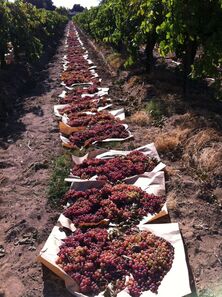 Who does your food connect you to? This is one of the questions we consider when engaging in the Raisin Meditation, a classic practice in the Mindfulness Based Stress Reduction (MBSR) tradition. Consider the beginning of a raisin – a small seed planted in the ground that grows into a vine, a tiny grape, a big grape. It’s removed from the vine and dried (often in the sun on the ground) until it shrivels up, then it’s packaged, transported, shelved, and sold. By the time that raisin is in your hand, it has seen rain, sunshine, and multiple moves. It has been brought to you by more people than can be counted – farmers, processors, drivers, grocery store workers, etc. It is a gift provided to you by nature and by a whole host of people, including the ancient people of the Middle East and Mediterranean regions who first discovered the raisin as early as 2000 B.C. And then when you experience that raisin in your hand, there is equal complexity. Visual stimuli of light and dark, ridges and hollows, asymmetries, variations in color. Tactile stimuli that shift continuously in response to the warmth of your hand that holds the raisin. Auditory stimuli when you hold it by your ear and roll it between your thumb and forefinger (did you know raisins can make a sound?). Smell that stimulates a reaction in your mouth, taste that changes moment to moment (sometimes exploding with surprises) once you place it on your tongue and take that first mindful bite. And your whole body knows how to process that raisin, how to get it into your mouth, move it around with your tongue, mash it with your teeth, move it down your throat into your stomach. Once you’ve eaten the raisin, it becomes a part of you. With careful attention to the process, you’ve no doubt observed a plethora of thoughts and feelings along the way of eating that one raisin, perhaps even some strong reactions. You may have had urges to swallow, memories of past raisins you’ve eaten, plans for what to do with other raisins in the future. Maybe you’ve experienced delight or craving or disgust. But whether your thoughts and feelings in reaction to the raisin have been pleasant or unpleasant, it has added nourishment and health to your body. The iron, potassium, fiber, and other good stuff God put in there has benefited you. You have been changed by your experience of the raisin. We can’t possibly pay this much attention to every bite – it would take too long and get too overwhelming! (AJ Jacobs, for example, speaks about the discovery that hundreds of people are involved in bringing him his morning cup of coffee each day.) But pausing to notice our food in this counter-cultural way can be transformational, waking us up to depths of goodness in this gift from God that is food. God made food for our benefit. It nourishes our bodies, keeps us alive, and brings us joy. It is a gift, connecting us to this big beautiful planet and to one another in ways we can’t even keep track of. Food is not just for breaking down into calories or controlling or judging. It is a good thing, and it is part of the good life. We benefit from paying mindful attention to the food we eat. If you’re interested in trying out a 10-minute Raisin Meditation from a Christian perspective, you can find a guide on my YouTube channel, The Mindful Christian. Bon appetit!  I’ve blogged about mindful parenting before, a long post with lots of practical ways I aim to apply mindfulness as a parent. But this time around, I just want to emphasize one thing: presence. If you are a parent, maybe you want your child to be different – to change sleeping habits, study harder, be more polite, be more helpful, comply more quickly, be more affectionate, regulate emotions more, demonstrate more gratitude, spend less time on the screen, etc. You can think about this as pushing and pulling on kids, resisting who they are in the moment in your desire for a different reality. This makes it hard to be fully present to who they are and where they are in their growth journey. Being present means I am not pushing my child to be someone different. Instead, I am joining them in the moment with curiosity about what God is up to in this moment as they (along with me) grow and change. I join with them in goals for a healthy and happy future, but I am present with them right now as the only place that growth and connection can happen – in the present moment. This usually requires us to slow down and look at our children, tuning in to their experience with compassion and patience. When applied interpersonally, mindfulness asks us to give up our own hurried and controlling agendas with one another – to listen deeply, speak truthfully, and demonstrate compassion for both ourselves and others. So mindful parenting brings this to the parent-child interaction – slowing down, giving up our rigid agendas, listening deeply, speaking truthfully, and showing compassion. And it brings a compassionate presence to our own experience in the process, because parenting can be hard. I once worked with a family in therapy who was experiencing behavior problems with their son. It quickly became apparent that the behavior issues were related to a significant difference between the boy and his parents – the parents loved soccer and saw full engagement with the sport as the only way to flourish. The boy had no interest in soccer – he loved theater and reading and creative pursuits. Through therapy, the parents learned to notice the pressure they were putting on him unnecessarily to be someone he was not. They learned to slow down, see their son’s interests, and be present to those. As they became more present to who he was, he no longer had the need to push back on their resistance – his behavior settled, and things became peaceful in their household. But it was ongoing work for his parents to remain present to him and his interests rather than mindlessly pushing their own agenda. Being fully present with our children is a deep and lasting gift, and it reflects the way God is ever-present with us in our own growth journeys. This poem, written by Jan Richardson for advent (based on Luke 3:3-4), rings also as a mid-pandemic New Year meditation. If you have been in the wilderness, feeling "like the world is leveling you, emptying you," this one is for you.
*** Prepare Strange how one word will so hollow you out. But this word has been in the wilderness for months. Years. This word is what remained after everything else was worn away by sand and stone. It is what withstood the glaring of sun by day, the weeping loneliness of the moon at night. Now it comes to you racing out of the wild eyes blazing and waving its arms, its voice ragged with desert but piercing and loud as it speaks itself again and again. Prepare, prepare. It may feel like the word is leveling you emptying you as it asks you to give up what you have known. It is impolite and hardly tame but when it falls upon your lips you will wonder at the sweetness like honey that finds its way into the hunger you had not known was there. Jan Richardson The Advent Door, Advent 2: Prepare "...life is so much more than occasions, and its grand ordinariness must never go unsavored." - Robert Farrar Capon, The Supper of the Lamb: A Culinary Reflection  If you’re anything like me, this pandemic may have you thinking about the nature of the good life. What makes our days full, joyful, and worth living? How do we get at the things that matter, even when all of our routines are pulled out from under us? A participant in one of my recent online classes described waking up one pandemic morning during shut-down, looking in the mirror, and asking herself “So, this is it?” With no reason to leave the house, wear real shoes, or be particularly productive, it wasn’t clear why she was there or what the point was. Can you relate? This is a question I’ve been asking myself my whole life. Why are we here? What’s the point? Life is hard and then we die – it’s all so short, and the chances of being remembered for long when we’re gone are so slim. What are we supposed to be doing while we’re here, and why is it so hard to feel any sense of worth or accomplishment? In the words of Wendell Berry’s book of essays, “What are people for?” Maybe you have an answer to this question that works for you, something taken from The Purpose-Driven Life by Rick Warren, Man in Search of Meaning by Victor Frankl, or the Heidelberg Catechism Question 1. If that is the case, feel free to read no farther. Otherwise, stick with me. Who are the people you think have lived a good life, and why? You might pause your reading here to actually answer this question, and make sure your examples are people you know well & authentically. I’ve pretty consistently held myself up to famously principled & bold people like Mother Theresa or Ruth Bader Ginsberg. Or famously rich people like Steve Jobs (who it turns out was pretty mean to people) or Oprah Winfrey. Or people claiming to be famously successful on social media, trying to sell me their influencer secrets on Instagram. None of these are people I know well, or know at all for that matter. So who are the people you actually know well, and why do you see their life as worthwhile? Chances are that it has something to do with their mere presence on earth. Nothing about that Nobel Peace Prize they won or that best-selling novel they wrote. Sure, those things are fun, but they don’t make a life worthy or non-worthy. We love people for the things it’s hard to put our finger on, their essence. We love that they are here with us, we love their little quirks and personalities. We know that when they’re gone, they leave a hole that can never be filled. Babies are a case in point - we know and love a baby before it has even emerged from the womb, before it has "done anything with its life." If you’ve followed the career of Mark Shields, you know he’s just stepped down from his weekly role on the PBS NewsHour. My husband is a big fan, so I watched the farewell video for Shields as a sign of marital solidarity. The things people will miss about Shields from his 33+ years on the show include his integrity, knowledge, wisdom, and sense of humor. But the thing that I found the most touching in the tribute video was this exchange: Judy Woodruff: He's beloved by his current and former producers, even for his strict preshow routine.  This is so normal. A guy who is a bit finicky about the color of his paper, his highlighters, & his stapling. A guy who has gotten comfortable enough with himself over the years that he knows just how he likes it, and he’s not afraid to be that person. And a staff that feels warmth as they recount these little indicators of his personhood, these small but meaningful reflections of who he is. The other day, my sister-in-law put out a request for family members to share their Christmas traditions via chat. I shared mine in great detail, emojis included, hit send, and immediately felt ashamed. I didn’t want to come across as too perfectionistic, too demanding or picky, or too eager to hog the limelight. I wished I had just chosen one little tradition to share instead of dragging people into the whole run-down of our family Christmas traditions. I expressed embarrassment to my husband, who smiled as he turned to me and said, “Never apologize for being who you are.” I smile even now when I type these words. What if it’s okay for us each to be who we are, and what if this is actually the point of life? To be ourselves, to settle into that, to assume that our good creator takes delight in us as a good creation. This is it, this is the meaning that resonates with me. To be who we are. And that means that this moment, where I am me, is enough. It is okay as it is, created by God, filled with the tools of goodness. There’s nothing outside of this moment that I need to do or to be. The sounds, sights, smells, feelings, tastes of goodness are right here – the meaning of life is here with me as I am, soaked right into the fabric of the everyday me. Nothing to prove to anyone. No where else to go, nothing else to do, except being who I am in the moment, connected and grounded to who God has made me to be in each moment. I think we need this reminder in a Christmas season where the usual trappings of meaning & purpose are stripped away. This year, the line “I’ll be home for Christmas” sounds a little less sentimental and a little more pandemicky – of course you’ll be home for Christmas, where you’ve been since March. So what will you do to savor its “grand ordinariness,” to make it special & meaningful without the usual routines, without the glitter? How will you be fully yourself? Whatever your grand ordinariness looks like this year, whatever it looks like to be fully you in this season, I wish you and your loved ones a very Merry Christmas! |
Author
I am Irene Kraegel. I am licensed as a clinical psychologist and teach mindfulness on a faith-based university campus. I practice mindfulness because it opens me up to God (a.k.a. brings joy). I am writing here in hopes of sharing some of my experiences and thoughts related to the practice of mindfulness in the life of a Christian. Thanks for reading! Books
Blog archives
December 2023
|
